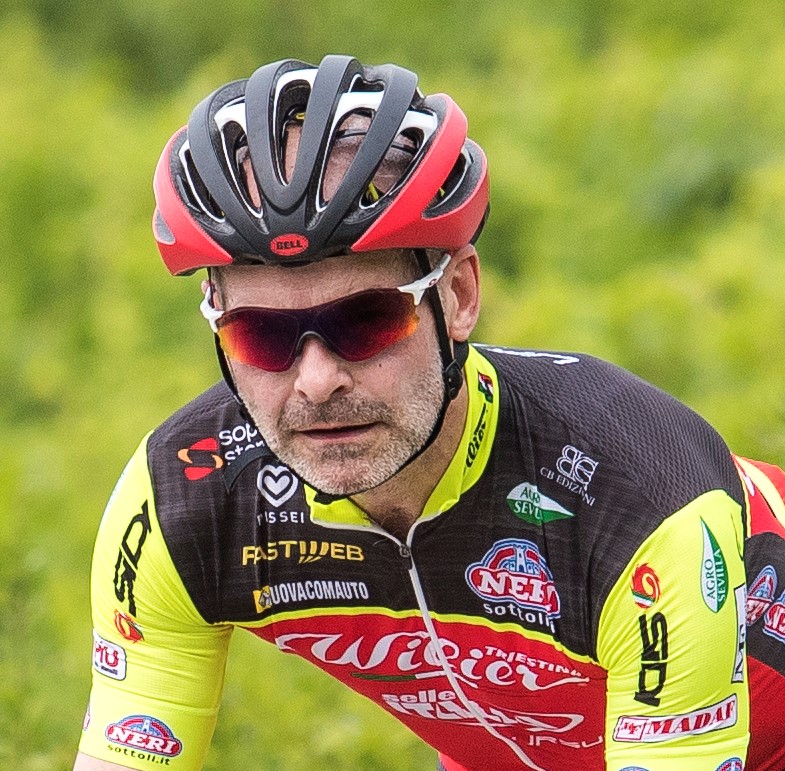Route-planning platform Komoot has undergone a refresh, featuring a new design that's intended to simplify navigation and route discovery, while increasing the emphasis on photo content.
It’s the first major change to the app’s look and feel since its acquisition in March by Bending Spoons – an Italian private equity investor whose portfolio includes web apps WeTransfer, Evernote and Vimeo.
There have been significant changes to the Komoot team too, with up to 85 per cent of staff reportedly laid off.
Through its restructuring, Komoot has moved to "smaller, autonomous teams" that a spokesperson said have enabled the brand to plan out an ambitious development roadmap that's "unburdened by bureaucracy and excessive managerial layers that are typical of larger organisations".
- Read more: Komoot acquired by tech firm, with expected mass layoffs leaving future of 150 staff in doubt
New look, new team

Going live today for the web app and at the end of September for the mobile app, Komoot now has a refreshed look, and easier site navigation and searching.
There’s also a stronger emphasis on photos, Komoot states. It says this will provide better background information to help users choose and build their routes.
The increased emphasis on visual material mirrors Strava, which has increasingly prioritised its social content, supporting photos and videos alongside its leaderboards and other virtual competition.
In April, Strava added 'sticker stats', which you can post to Instagram and other social media apps.
Komoot is keen to stress that, even though the new look is the first major change to the user interface since the sale, it has been busy in the background and has made more than 50 changes to the app since March.
Its roadmap for development promises an update to the web route planner, designed to improve route discovery and planning. It also intends to enhance route descriptions and make route searches easier.
Other updates in the works in 2025 include user heatmaps – again mirroring functionality in Strava, where it’s part of the paid-for route-planning functionality.
Heatmaps are also part of Garmin Connect, where it’s currently free to use – although Garmin has put once-free elements of its app behind a paywall with the launch of Connect+, which provides deeper performance analysis.
Further out, Komoot plans to add badges and more waypoint functionality, as well as overhauling its navigation and adding a dark mode to reduce battery drain when navigating.
Significant staff changes

The new developments come against a backdrop of significant change at the brand.
At the time of the sale to Bending Spoons, Komoot’s CEO and co-founder, Markus Hallermann, stated that: “What got us here won’t take us to the next level. Scaling a company requires a different mindset and skill set than building one. That’s why we believe Bending Spoons, with its unique expertise in driving innovation and scaling platforms, is the perfect partner to lead Komoot into the future.”
Hallermann and the rest of the founding team are no longer involved with Komoot, its media manager Eva Kuprella confirms.
There have also been significant lay-offs in the Komoot development team, reported at 85 per cent of the pre-purchase staff of 150.
Asked about the scale of the layoffs, Kuprella said: "We can’t comment on the scale of the layoff, but one did occur", adding that "it wasn't a decision taken lightly."
"We acquired Komoot with the ambition of driving further growth – both by expanding into new markets and by reaching additional segments in established ones such as Germany, United Kingdom, Italy, and France.
"To support this vision, we reorganised the team accordingly. Counterintuitive as it may seem, our experience has shown that smaller, autonomous teams… tend to operate with greater speed and efficiency."
Kuprella says that Bending Spoons has also injected its own staff into Komoot: "The current Komoot team is a blend of pre-acquisition team members and new additions from Bending Spoons. The team combines historical knowledge of the product, market, and industry with a fresh perspective and experience from other successful products of the Bending Spoons portfolio."
Komoot was famed in the outdoors industry for its family-like working culture and in-person team-building events.
Kuprella says Komoot's pre-sale culture of remote working, flexible working hours and other benefits will continue under its new ownership: "[Komoot] employees have also enjoyed flexible working hours, a generous personal development budget, and other benefits.
"All of these policies will continue – not just for the sake of continuity, but because Bending Spoons shares and upholds similar initiatives and values as well."
Price increases for users

Komoot’s business model was previously to provide mapping in one region – typically a county in the UK – for free, with other regions purchased at extra cost, or a one-off payment to open up indefinite access to maps of the world.
A Premium annual subscription to Komoot, costing €59.99, remains available, or web users can opt for a monthly plan at €6.99 per month. There is also a weekly option for iOS and Android users at €4.99, designed to suit short-term use. Komoot says all plans can be cancelled at the "user's convenience".
Premium subscription enables users to download maps for offline use and plan multi-day ‘Tours’ as well as offering other functionality.
Komoot says that following the acquisition, the Route Sync to Device feature is now accessible to more users, including free users.
Komoot is also looking to expand into new markets and segments from its established base, primarily in Europe.
Editor's note: this article was updated on 17 September 2025, at Komoot's request, to clarify the functionality available to free and Premium users, plus the details and pricing of Premium subscriptions.




